
The winner of the Washoku World Challenge 2013 Grand Prize, determined at the final round of December 8, 2013, was Li Kwok Wing, manager of the Santaro Japanese Restaurant, a sushi establishment based in Singapore. Mr. Li was deemed the best among the group of excellent finalists.
Mr. Li, originally from Guangdong Province, has a 40-year career in Japanese cuisine. He left China for Hong Kong in 1973 amidst the excesses of the Cultural Revolution where, by coincidence, he landed a job at a Japanese restaurant. There he learned the art of Japanese cuisine as well as the Japanese language from a senior chef. He was highly impressed with the characteristic method of Japanese cuisine, which draws out the individual flavors of the food. His restaurant "Santarois named after the nickname given to him from this period. Mr. Li relocated to Singapore in 1980, where he worked at a sushi and kaiseki cuisine restaurant. During this period he underwent a training course with Chef Rokusaburo Michiba of Ginzarokusan-Tei, which proved another huge jump on his career path.
At the awards ceremony following the final round, Mr. Li was presented with a trophy at the Ministry of Agriculture, Forestry and Fisheries Lecture Hall by Kikkoman Honorary Chairman Yuzaburo Mogi, who served as the Washoku World Challenge Executive Committee Chairman. A happy Mr. Li said "I very much appreciate this wonderful opportunity, and I would like to continue to popularize Japanese cuisine for its delicious flavor and healthy qualities.
Mr. Li's dish was very well received. The judges commented: "We were pleasantly surprised at how well he re-created Japanese cuisine to Japanese tastes. We can see how hard he works and studies to perfect his art (Kihachi Kumagai, Chief Advisor at Ivy, Inc., final round judge). About his dish, steamed chestnut & pumpkin, Chef Seiji Yamamoto of RyuGin commented: "He's really captured the mildness of Japanese cuisine by using pumpkin as his main ingredient. This choice truly illustrates the depth of his experience with Japanese cuisine.The five judges including Chef Yamamoto gave Mr. Li high marks.

Li Kwok Wing is presented with the Grand Prize
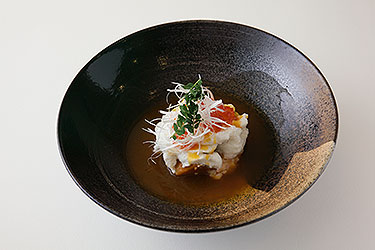
Mr. Li's winning dish: Steamed chestnut & pumpkin

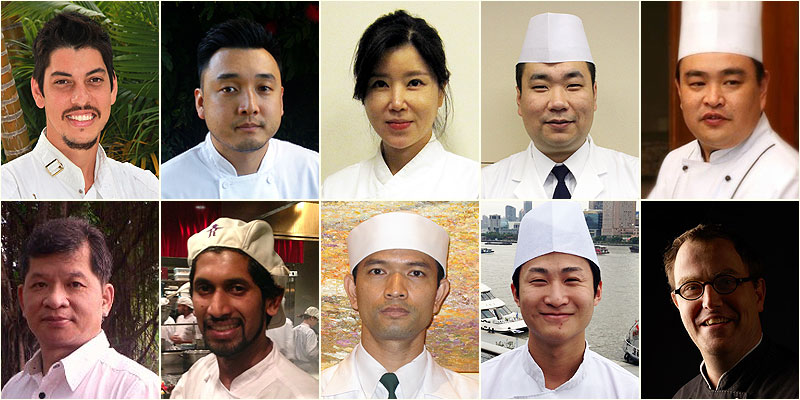
| Jeff Ramsey | Wonny Lee | ||
|---|---|---|---|
 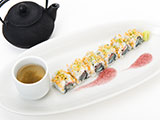 |
Male, 37, U.S. Sushi chef & menu consultant Dish: Ochazuke rolls Savory flavors created with layers of fish, soup stock, malted rice/salt malted rice, dried kelp, plus dried seaweed, and topped with crispy rice pellets for an aromatic, flavor-enhancing effect |
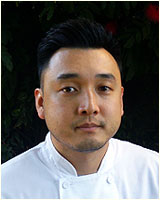 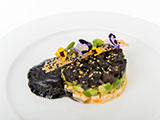 |
Male, 32, U.S. Executive chef, Hamasaku, Los Angeles Dish: Tofu and tuna in tartar sauce with squid ink and dried seaweed vinaigrette Featuring high-protein low fat ingredients tofu, tuna, and avocado, the latter two also rich in omega-3 fatty acids |
| Ha-Yeon Kim | Geonwoo Park | ||
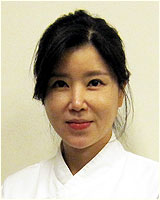 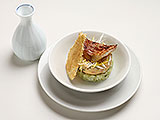 |
Female, 34, Korea Student, Hattori Nutrition College Dish: Tilefish ochazuke A low-calorie yet highly nutritious dish |
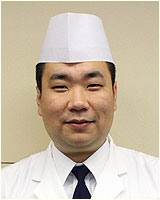 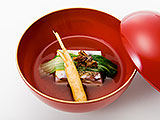 |
Male, 35, Korea Student, Tsuji Cooking Academy Dish: Pine nut tofu with chicken broth This dish stands equally well on its own as it does as part of a kaiseki cuisine course. It features broth made of chicken, ginseng, and tofu made of a variety of nutritious beans. |
| Mark Tay Kuan Jin | Li Kwok Wing | ||
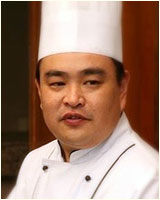 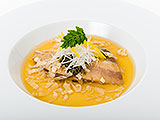 |
Male, 41, Singapore Chef at Akane Restaurant, The Japanese Association, Singapore Dish: Yellowtail & daikon radish hotchpotch with ankake sauce bean curd skin Made oil-free and featuring bean curd skin in a finishing touch, this dish is even healthier than that made the conventional way. |
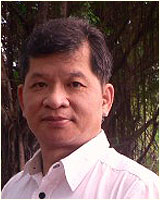 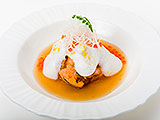 |
Male, 60, Singapore Executive Chef of Santaro @ Hinoki Japanese Restaurant Dish: Steamed chestnut & pumpkin Pumpkin helps to revitalize liver and kidney function |
| Rawathawatta Windana Kankanamlage Ruwinda Jayawi Rawathawatta | Jaran Deephuak | ||
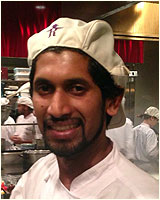 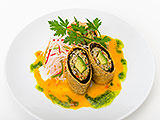 |
Male, 31, Sri Lanka Chef at Rigoletto Bar and Grill Dish: Batter-fried shrimp and avocado with mango chili sauce Featuring shrimp and assorted vegetables |
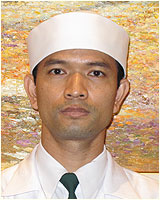 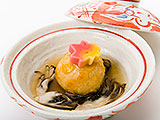 |
Male, 40, Thailand Osaka Cuisine Nanohana Dish: Steamed corn buns with maitake mushroom ankake sauce A healthy, lightly seasoned dish using ingredients found in Thailand year-round, delectable to both Thai and Japanese tastes |
| Mao Yuming | Robrecht Wolters | ||
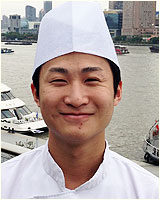 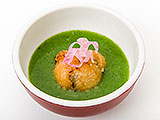 |
Male, 24, China Chef at RIVIERA SONGHELOU Dish: Salmon-and-potato steamed buns Utilizing all parts of the salmon including the bones, skin, jaw and other meat, this dish is an excellent source of ocean minerals |
 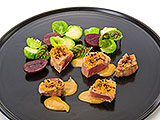 |
Male, 41, Belgium Owner & chef at KO'UZI sushi & fine foods Dish: Pork fillet with miso sauce flavored with buckwheat tea and cocoa spice A low-fat, low-calorie pork dish loaded with B vitamins, created in a vacuum pack to lock in savory flavors |
The Washoku World Challenge 2013 is a Japanese cuisine competition in which individuals of non-Japanese nationality engaged in the field of Japanese cuisine are eligible to participate. Chefs trained in various countries around the world will compete on the subject of original Japanese cuisine.
Japanese cuisine is rapidly growing in popularity all around the world. The number of Japanese restaurants overseas is increasing, doubling in just three years. The Competition is designed to identify talented individuals engaged in the field of Japanese cuisine in different countries, and to popularize the special appeal of Japanese food even further.
It is currently estimated that some 80-90% of Japanese restaurants overseas are run by non-Japanese. Many of these establishments offer relatively low-priced Japanese cuisine at comparatively low prices, making them very popular in their localities. When the foods or culinary culture of a country are brought to other places, it is essential that the fare be adapted to suit the tastes of the locality—that is to popularize such restaurants to appeal to a general audience. In this sense, clearly Japanese cuisine is becoming an integral part of the local scene in many countries.
On the other hand, there are issues that Japanese restaurants need to overcome in order to reach even more of the world.
This is clear when we look at the history of European cuisine in Japan. Originally, French cuisine was only eaten in Japan on special occasions marking turning points in one's life. Instead, Japanese people have long enjoyed a genre of European-style cuisine adapted to Japanese tastes. This type of cuisine has long been popular in department store cafeterias, local neighborhood eateries, and more.
Subsequently, as they became more and more accustomed to foreign foods, Japanese people came to love authentic Japanese cuisine. At this time, Japanese cooks travelled abroad to countries like France and Italy to train in the preparation of the local cuisine, returning to Japan to share what they had learned. This resulted in the opening of numerous restaurants offering quality authentic European cuisine at reasonable prices, yet in a relaxed atmosphere compared to establishments such as the French restaurants found in high-class Japanese hotels. This trend brought tremendous change to Japanese eating styles.
There is a limit to the extent of how much Japanese cuisine can be popularized abroad by Japanese people alone. To truly convey just how remarkable Japanese cuisine is to people around the world, we need cooks from the different countries who understand the tastes of the local people. Washoku World Challenge 2013 supports these missionaries of Japanese culinary culture: by discovering men and women who are working around the world to improve their skills and offer more and more delicious food to as many people as possible—that is making people happy with Japanese food—we support them as they move to the next level.
From amongst a total of 106 entries received from applicants from 21 different countries around the world, we have selected ten finalists. These ten will create and exhibit their entries at the Washoku World Challenge final, to be held on December 8. Media personnel from around the world will be invited to the contest and the subsequent awards ceremony, at which time award recipients will be presented with prize money. The finalists will also be invited to a dinner with some of Japan's top chefs at renowned Japanese restaurants in order to foster ties between them.
Organizer: Washoku World Challenge 2013 Executive Committee, Ministry of Agriculture, Forestry, and Fisheries
Support provided by: Nikkei BP
Washoku World Challenge 2013 Executive Committee
| Chairman | Yuzaburo Mogi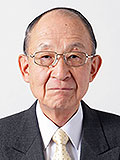 Honorary CEO and Chairman of the Board, Kikkoman |
|||
|---|---|---|---|---|
| Advisor | Masayoshi Kazato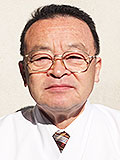 World Sushi Cup Japan Convention Chairman |
Yoshiki Tsuji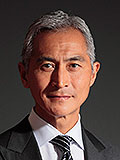 Chairman and Head of the Board of Directors, Tsuji Culinary Institute. |
Yukio Hattori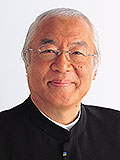 President of the Hattori Nutrition College |
Yoshihiro Murata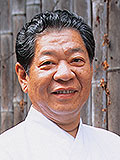 Owner & Chef of Kikunoi |
| Judging Committee Member |
Minoru Ishida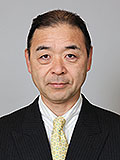 President, ODA Culinary College |
Kihachi Kumagai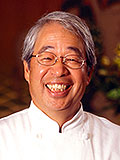 Chief adviser, Chef of Ivy, Inc |
Joel Bruant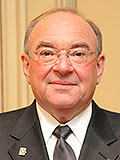 Chairman, Académie Culinaire de France Japan |
Kumiko Ninomiya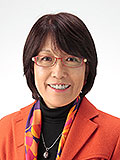 Director, Non-profit Organization Umami Information Center |
Takeshi Murayama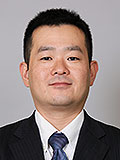 Japanese Cuisine Course, Cooking Skills Dept., ODA Culinary College |
Tadashi Yamagata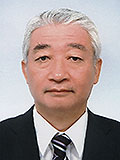 Chairman All Japan Sushi Association |
Seiji Yamamoto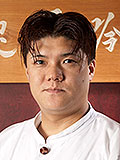 owner and chef of RyuGin |
||
| Preliminary screening support: |
The TSUJI Group | |||
- Preliminary Screening of Documents (completed)
-
Application forms and preliminary entries were screened by the TSUJI Group, renowned experts in the field of Japanese cuisine, to determine our finalist entries. Applications were evaluated based on how well they fit into the framework of Japanese cuisine, as well as flavor and aesthetics, originality, and relevance to the contest theme of healthy cooking.
- The Contest
-
The contest will be held on December 8th at Chu BO!SHIODOME (http://eee.tokyo-gas.co.jp/chubo-sr/) (Tokyo Gas Kitchen Showroom for Professionals) in Minato Ward, Tokyo. The judges will score the dishes made by the contestants on appearance and flavor. The contestants' cooking process will also be evaluated.
- Awards Ceremony
-
The Awards Ceremony will be held at the 7th Floor Lecture Hall of the Ministry of Agriculture, Forestry, and Fisheries (Kasumigaseki 1-2-1, Chiyoda-ku, Tokyo) on December 8th at 6 pm.The finalist deemed the most excellent by the judging committee will receive the Grand Prize, and the others will each receive the Second Prize.
- Media Inquiries:
-
washoku-question@nikkeibp.co.jp









